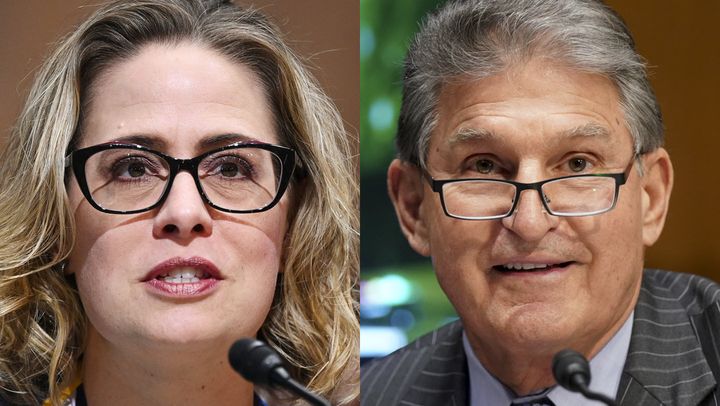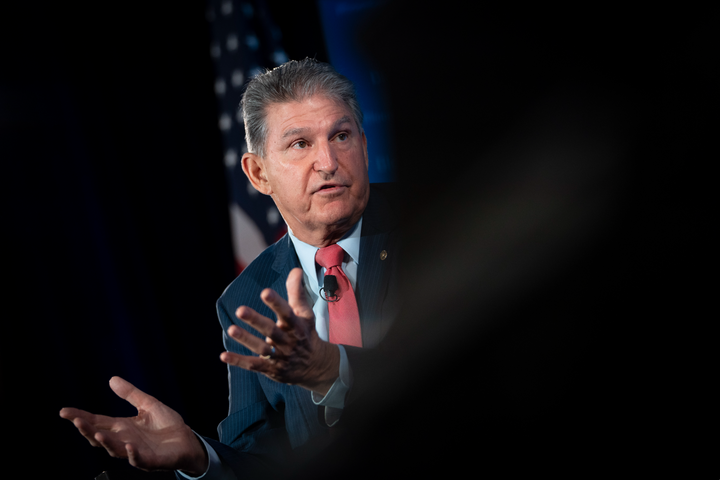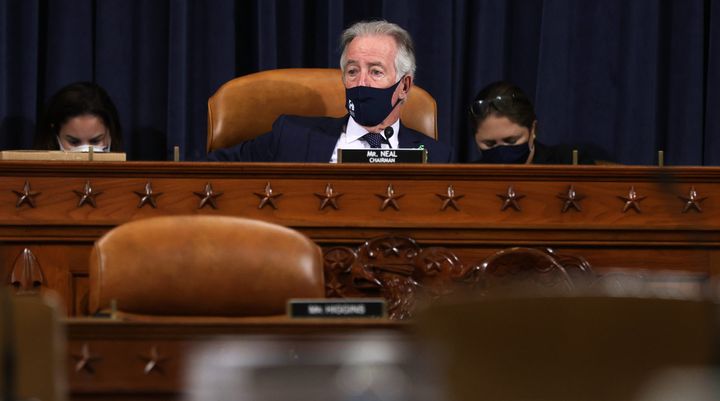In May, Sen. Joe Manchin (D-W.V.) told Politico that he wasn’t in any rush to advance the Biden White House’s priorities and pass a Democratic budget reconciliation bill, saying, “there’s no magic date and there’s no magic time, there’s no magic number.” As the bill has been developed, Manchin, along with conservative Arizona Democrat Kyrsten Sinema, has worked to undermine it, pushing its 10-year spending total down to around $1.75 trillion and stripping out major programs in areas like clean energy and paid family leave.
In October, Manchin shot down a proposal from Sen. Ron Wyden (D-Ore.) to increase taxes on individuals with more than $1 billion in assets or who earn more than $100 million in three consecutive years, telling reporters that he didn’t like the idea of targeting people who create a lot of jobs and make a lot of philanthropic contributions.
Also last month, President Biden told a town hall audience, on Sinema’s inscrutable position on tax rates in the budget: “Where she’s not supportive is, she says she will not raise a single penny in taxes on the corporate side and/or on wealthy people, period.” The White House later clarified that other types of revenue raisers, including a corporate minimum tax, were on the table in negotiations with Sinema.
While Manchin and Sinema worked to delay and reduce the Democrats’ budget bill, they were raising campaign money from wealthy Republican donors, according to a Sludge review of campaign finance data from Code for Democracy. For many of these donors, their contributions to Manchin or Sinema this year have been only their first or second donations to any Democrats in recent election cycles.



